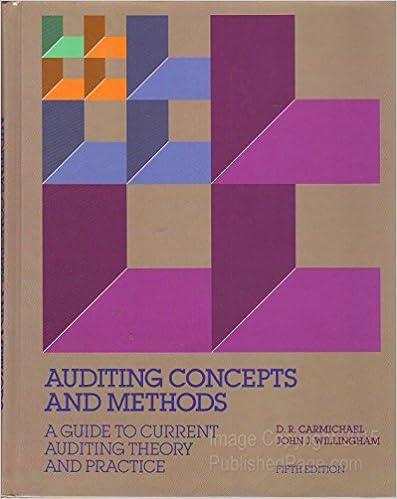For each one of the following statements indicate whether the statement is true or false. a. The
Question:
For each one of the following statements indicate whether the statement is true or false.
a. The essential difference between professional and nonprofessional work is the professional's need for procedural skill.
b. A privilege that professionals strive for is relative immunity from community judgment on technical matters.
c. The only direct power the AICPA has over its members is termination of their membership.
d. The Financial Accounting Standards Board is the division of the AICPA that deals with the development of accounting principles.
e. The groups that actually issue licenses to practice as a certified public accountant are state societies of CPAs.
f. The ethical principles of the concepts of professional ethics must be adhered to and CPAs may be disciplined for violations of such principles.
g. An auditor will not be considered independent of a company if the auditor has even one share of stock in that company even though the company has issued thousands of shares that are widely held.
h. If a CPA provides a company with bookkeeping services, that CPA cannot be considered independent of that company.
i. Adherence to generally accepted accounting principles or auditing standards are separate matters from adherence to the rules of conduct.
j. The rule of confidentiality does not preclude a member from furnishing information related to clients to the AICPA ethics division.
k. A CPA firm must adopt policies and procedures to minimize the likelihood of association with a client whose management lacks integrity.
l. All members of the AICPA engaged in auditing practice must have a peer review periodically.
m. SEC Form 8-K has to be filed only when certain types of events occur.
n. The auditor's liability to third parties under common law can be determined only by reference to recent decisions within the particular state where a case is litigated.
o. Under the Mann Judd Landau decision, the single act of mailing a report to a creditor establishes that the auditor knew of the creditor's reliance on the report.
Step by Step Answer:

Auditing Concepts And Methods A Guide To Current Auditing Theory And Practice
ISBN: 9780070099999
5th Edition
Authors: Mcgraw-Hill





